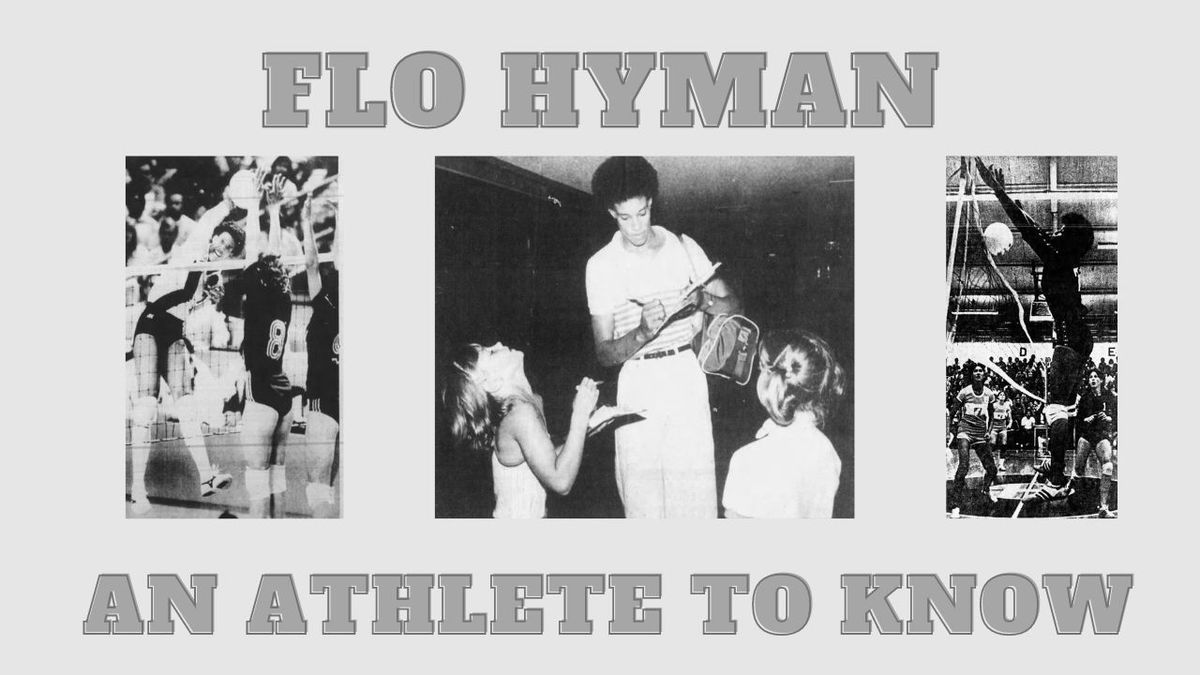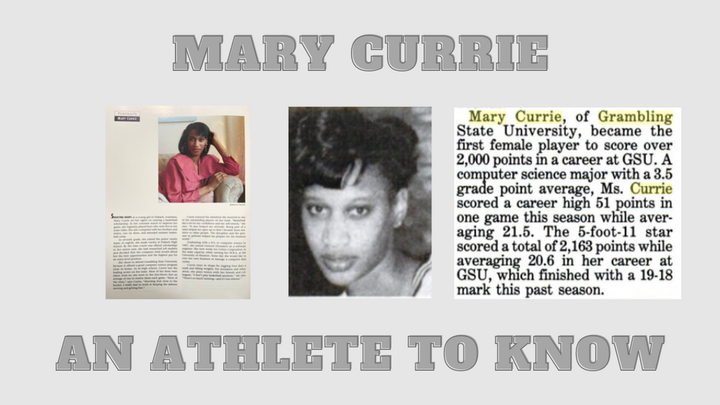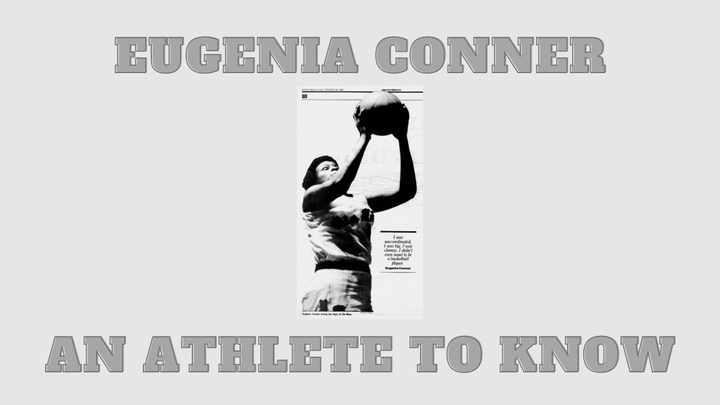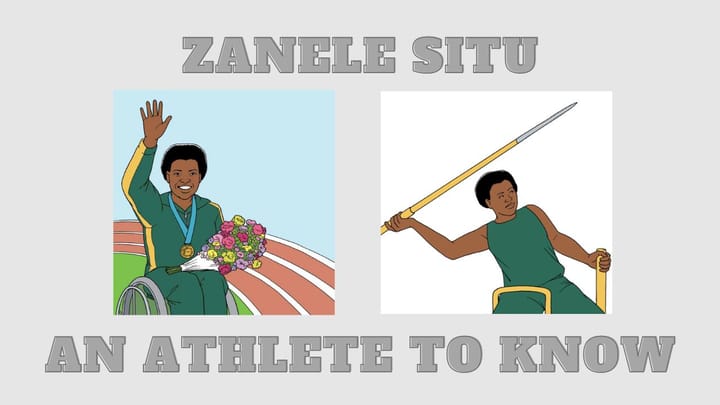Flo Hyman: An athlete to know
Flo Hyman is an athlete to know.

Flora ‘Flo’ Hyman (1954-1986) was a professional volleyball player, foundational member of the U.S. women’s volleyball team, and a women’s sports advocate. She has been considered one of the world’s best to play the sport before there were many options to pursue it professionally within the United States.
“For men, sports is a business. Football, that’s big money. Basketball that’s big money. We don’t get any money,” she said. “We have to give up mostly everything, family life, going to school. For us, it’s nothing but the sheer satisfaction of doing something you wanna do.”
As a 6-foot-5 outside hitter, she was a three-time all American at the University of Houston from 1974-76 and National Player of the Year in 1976. She also won a world championship bronze and an Olympic silver medal with the U.S. national team and played professional volleyball in Japan.
Writers have described her as both one of the most powerful and the most effective hitters in her time.
“She may be the best women’s player around as she definitely demonstrated in the Nationals last year,” said U.S. Coach Arie Selinger in the 1977 article Flo’s the Difference.
He also said Hyman was coachable, but struggled with defense because of her height. One opposing coach said she wasn’t the best blocker but “she’s definitely the strongest hitter in the world.” An opposing player contributed that to her ability to hit down, which, in addition to the power behind her spikes, made it even harder to block.
Flo could also read the court well.
“Hyman then surprised Hawaii, faking a spike then dropping an off-speed shot in the right corner for the final point,” wrote Randy Cadiente.
Hyman was born in Inglewood, California and attended Morningside High School. There, she competed in basketball and track-and-field before choosing volleyball.
“I think I just took a liking to volleyball because it’s the only sport people weren’t after me in,” she said. “Like, ‘hey come play over here because you’re 6’5 and you could be good.’ It was my choice, and I found out that I liked it.”
Her game eventually was noticed by college teams, she earned “the first female athletic scholarship awarded by the University of Houston in 1974.” According to UH, she majored in math and physical education, but left early to pursue a volleyball career with the U.S. national team and professionally.
She began competing for the U.S. team in 1975 and helped Team USA earn the silver medal (the team’s first medal) at the 1984 Olympics.
Hyman made the 1980 Olympic volleyball team and was among the athletes advocating for participation after the U.S. boycotted the Games that were set to be held in Moscow. She told The Philadelphia Inquirer about the life, physical, mental, and health sacrifices that came with qualifying for an Olympic Games, including the living arrangements – “Just one little room for two years.”
“It almost feels like we’re pawns in a chess game,” she said. “We wonder, ‘How did we ever get in the center of the issue?’... The nation always says ‘Sacrifice, sacrifice, sacrifice.’ They don’t believe that the athlete already truly knows the meaning of sacrifice because you’re sacrificing your life, your body, your mental state just to achieve, to prove something – to prove your self worth.
"If the Games were apolitical like they should be, then this whole situation (in Afghanistan) would not have a bearing on them, and you would not have the worries, the heartaches we’re having today."
Hyman frequently mentioned that she and her teammates were focused on building a foundation for the U.S. women’s volleyball program.
“When I started, there was nothing,” Hyman said. “Volleyball was just something you play on your team in high school. By my endeavors, and by the other girls' endeavors, forming a national team, we have become more and more noticed. We practice 6-8 hours a day, 6 days a week. Sunday’s our day off.”
Later in that decade, Hyman became an advocate for what became the 1988 Civil Rights Restoration Act, which “restored protection against sex discrimination in high school and college athletic programs.”
Hyman passed away in 1986 at age 31 when she collapsed during a match while playing in the Japanese League.
Since 1987, the Women’s Sports Foundation has given out the “Flo Hyman Memorial Award to an athlete who “captures Hyman’s ‘dignity, spirit, and commitment to excellence.’”
She was inducted into the International Volleyball Hall of Fame in 1988. There is also a statue of her at the entrance of the Olympic Volleyball Training Center in Colorado Springs.
When asked about her dreams before the 1980 Olympics, she mentioned medaling at those Games. But she also looked toward the future.
“I would like to see our program continue and see the younger generation come up. Because I want volleyball to develop in the United States in such a way that when you’re in Kindergarten, you can play volleyball,” she said. “And I’m going to be involved in making a program for younger people so they won’t have to do what I did and say, “this is what I want to do but I don’t know how to do it.”
Learn more about Flo Hyman:
Olympian Flo Hyman | Real People
Flo Hyman, Volleyball Star For 1984 U.S. Olympic Team
A Tribute to Flo Hyman - Always a Cougar
Flo Hyman, 31, Collapses While Competing in Japan
Sports Illustrated on Marfan Syndrome



Comments ()